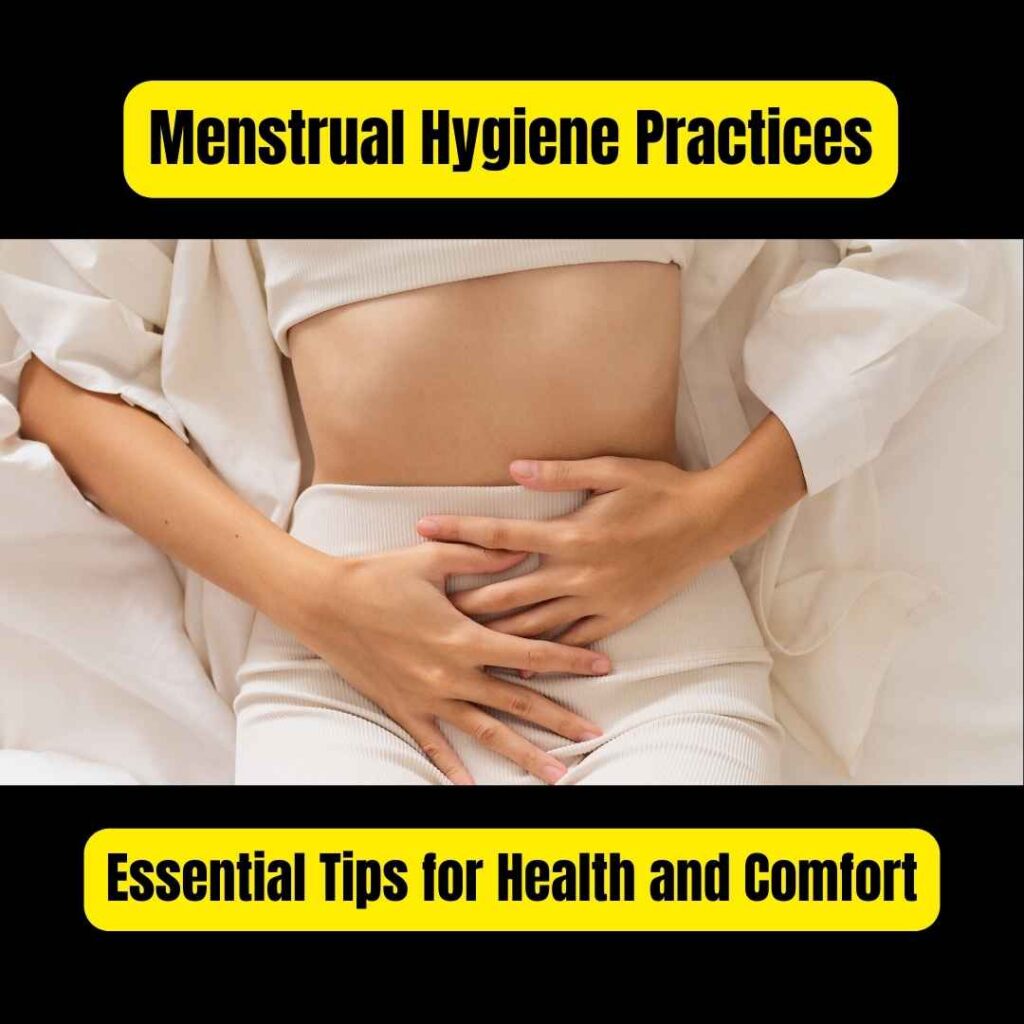Menstrual Hygiene Practices: Essential Tips for Health and Comfort
Understanding and managing the menstrual cycle goes beyond simply dealing with the monthly period. It involves maintaining good menstrual hygiene, recognizing period symptoms, and adopting practices that promote overall comfort and health. The menstrual cycle, a natural and necessary part of a woman’s reproductive health, deserves attention and care to ensure that women feel their best during this time. In this blog, we will discuss the menstrual cycle phases, the importance of menstrual hygiene, and essential tips for managing both your physical and emotional well-being during your menstrual monthly cycle.
Understanding Menstruation
Before diving into menstrual hygiene practices, it’s essential to understand what menstruation is. The menstrual cycle is a monthly process in which a woman’s body prepares for a possible pregnancy. If pregnancy does not occur, the body sheds its uterine lining, resulting in menstrual bleeding. This process usually lasts between three to seven days and can vary from person to person.
Menstrual blood is composed of blood, vaginal secretions, and the shed lining of the uterus. Many women experience various symptoms during their period, including cramps, bloating, mood swings, and fatigue. Understanding your body and its needs during this time can help you manage these symptoms better.
Why Menstrual Hygiene Matters
Maintaining proper menstrual hygiene is vital for several reasons:
Preventing Infections: Inadequate menstrual hygiene can result in infections such as bacterial vaginosis, yeast infections, or urinary tract infections (UTIs). Poor hygiene practices, such as not changing menstrual products regularly, can lead to an imbalance in the vaginal flora, increasing the risk of these infections. Ensuring cleanliness can prevent these issues and help maintain overall health during the menstrual menstruation period.
Comfort: Good hygiene practices can enhance comfort during your period. Regularly changing menstrual products—whether using pads, tampons, or menstrual cups—minimizes discomfort, reduces odor, and promotes a feeling of freshness.
Physical Health: Proper care of your genital area during menstruation helps avoid skin irritations, rashes, and other issues associated with poor hygiene. This includes choosing the right sanitary products for your cycle of menstrual cycle and ensuring that they are changed frequently.
Mental Well-Being: When you feel clean and comfortable, your confidence and mood improve. Feeling fresh during your menstrual cycle can reduce the stress and discomfort that may otherwise lead to mood changes during period.
Key Menstrual Hygiene Practices
Now that we understand the importance of menstrual hygiene, here are some essential tips to maintain it:
Choose the Right Menstrual Products
Selecting the right menstrual product is one of the most important steps in maintaining good hygiene during the monthly cycle. Options include:
Sanitary Pads: These are the most common product and are available in various absorbencies. They should be changed every 4 to 6 hours, especially during heavy flow days, to avoid leakage and irritation.
Tampons: Tampons are placed inside the vagina to absorb menstrual blood internally. They should be replaced every 4 to 8 hours to maintain hygiene and prevent discomfort. Using tampons for longer periods can increase the risk of toxic shock syndrome (TSS).
Menstrual Cups: A reusable, eco-friendly alternative that collects menstrual blood. It can be worn for up to 12 hours, but it needs to be cleaned thoroughly after each use.
Period Underwear: These are specially designed to absorb menstrual blood and provide a comfortable option for lighter flows or for use in conjunction with other products.
Change Products Regularly
Regardless of the product you choose, it is important to change it at appropriate intervals. Pads should be changed every 4 to 6 hours, while tampons should also be replaced regularly to prevent odors, discomfort, and infections.
Maintain Proper Hand Hygiene
Before and after changing menstrual products, always wash your hands with soap and water. This reduces the risk of introducing bacteria into the vaginal area, which is especially important during menstruation and menstrual cycle phases.
Clean the Genital Area
Using mild, unscented soap and water to clean the genital area can help prevent infections and irritations. Avoid using douches or scented products, as they can disrupt the natural balance of bacteria in the vagina and cause issues like yeast infections.
Avoid Scented Products
While many women use scented pads or wipes to feel fresh, it’s better to avoid them during your menstruation cycle. Scented products can irritate the delicate skin around the vaginal area and disrupt the natural pH balance, leading to discomfort or infections.
Managing Symptoms During Your Menstrual Cycle
While menstrual symptoms vary from person to person, here are some general ways to manage discomfort:
Hydration: Drinking plenty of water helps prevent bloating and aids in digestion, reducing bloating during your monthly period.
Diet: A balanced diet that includes iron-rich foods like spinach, red meat, and legumes can help compensate for the iron lost during menstruation.
Exercise: Regular physical activity, such as light walking or yoga, can reduce cramps and improve mood by increasing blood circulation and releasing endorphins.
Rest: Adequate sleep is crucial for emotional and physical recovery during your menstrual cycle and phases. It helps regulate hormones and reduces fatigue.
Tracking Your Menstrual Cycle
Keeping track of your menstrual cycle days is a great way to predict your period and manage your period symptoms. By using an app or a calendar, you can track your period cycle days and anticipate symptoms such as cramps, mood swings, or bloating. This also allows you to notice any irregularities in your normal menstrual cycle.
Tracking your menstrual cycle hormones can also help you understand the fluctuations in mood, energy, and physical health. For example, ovulation cycle hormones tend to peak in the middle of your cycle, leading to heightened fertility and potential mood changes during periods.
Conclusion
Maintaining menstrual hygiene is essential for health and comfort throughout the menstrual cycle. Proper care can help prevent infections, improve comfort, and support both physical and mental well-being. By following the tips outlined above and understanding your menstrual cycle phases, you can take better control of your periods, manage period symptoms, and ensure a more comfortable monthly cycle. Remember, a healthy female cycle is a balanced one, and with the right knowledge and practices, you can navigate it with confidence and comfort.
For a personalized diet plan or yoga classes, contact Reshma K. at Fitness Queens. Get expert advice tailored to your unique needs and start your wellness journey today!


